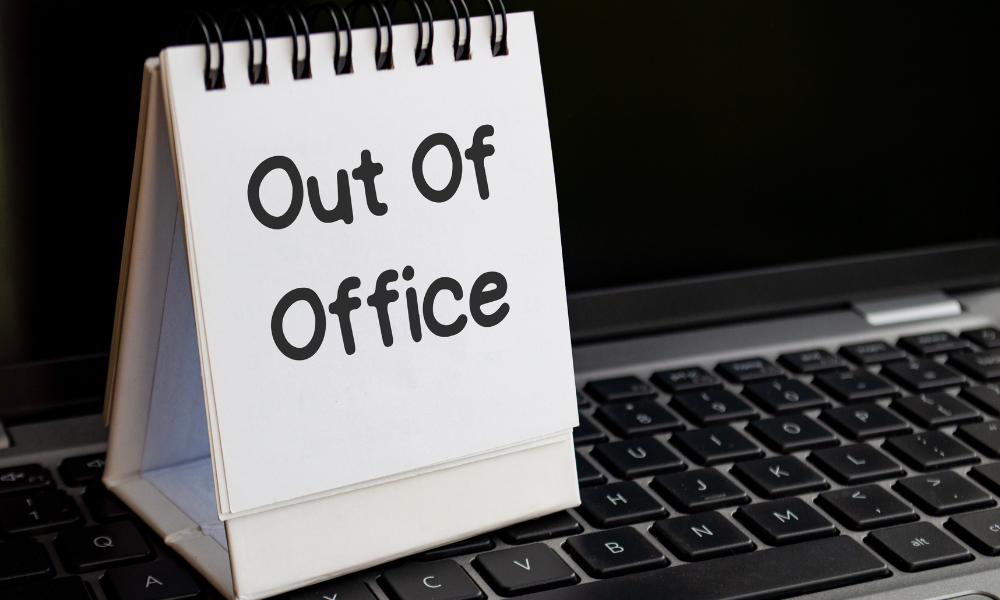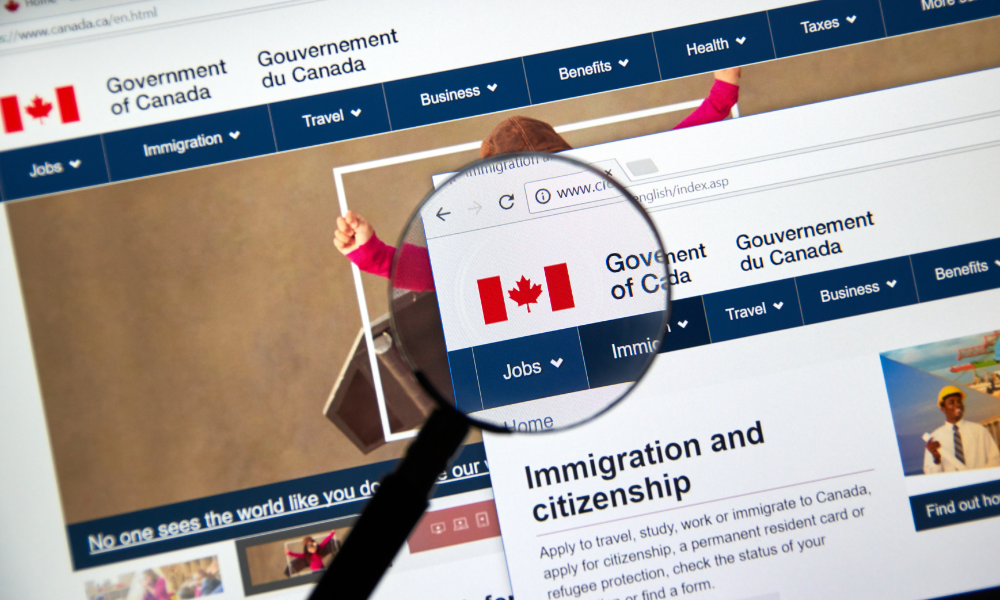'You have to allow for differences of opinion, but you can make sure that they're respectful': lawyer

In October 2023, tensions in the Middle East ignited when Hamas attacked Israel on behalf of Palestine. It was the latest salvo in a longstanding dispute over land and religion in the region, starting an armed conflict there and a polarization of society around the globe over the status of Israel and Palestine as nations and states.
This polarization has led to countless protests and debates in Canada stemming from passionate beliefs on both sides. Unfortunately, that passion has sometimes led to violence and hate targeting both Jewish and Palestinian people. According to Jewish advocacy organization B’nai Brith, its annual audit showed that antisemitic incidents in Canada more than doubled from 2022 to 2023, particularly following the Oct. 7, 2023, Hamas attacks. Also in 2023, Ottawa police reported that Jewish people were the most targeted group in hate-related incidents, while incidents against Muslims in Canada’s capital rose 160 per cent in January 2024 from a year earlier.
The National Council of Canadian Muslims reported that Islamophobic and anti-Palestinian racism incidents increased 1,300 per cent following the beginning of the Israel-Hamas war.
Given how prominent and emotional this conflict is with many people, there’s a good chance that it will bleed into workplaces – or already has. What happens if the hate does too?
With the increase in hate-related incidents and violence in society in general, employers have to be on guard in case the passion from global events also deteriorates into racist and antisemitic incidents in their workplaces. Employers need to be ready to live up to their legal obligations to ensure a workplace free from harassment and discrimination, says Richard Johnson, partner and co-founder of Ascent Employment Law in Vancouver.
“Workers’ compensation bodies will be very concerned that nobody is bullied, harassed, or subjected to psychological violence or an unsafe psychological situation at work,” says Johnson. “And then there’s a more direct conduit between that kind of conduct and human rights legislation across the country, which prohibits discrimination based on things like race, religion, place of origin, or ancestry.”
Respectful workplace policy
Legislative protections are a starting point, but employers should have policies in place that not only follow the legislative prohibitions on harassment and discrimination, but also flesh out broader protections and outline how misconduct will be addressed, adds Johnson.
“Employers that are ahead of the game will have a respectful workplace policy that enshrines these things - and then go a little bit further to prohibit disrespectful conduct in the workplace, even if it's not discriminatory, or not workplace violence, or psychologically unsafe,” he says.
It’s likely there’s some talk in many workplaces that could bring the associated polarization and potential conflict, so employers would be wise to address it directly and emphasize respect for everyone, according to Johnson.
“There’s a general approach that employers should take, not to sweep it under the carpet and just tell everybody to be quiet and do their work,” he says. “It may be beneficial to have meetings or discussions with respect as a keystone accountability at the beginning - you can actually use this to have really good opportunities for mutual dialogue in the workplace.”
Johnson also suggests creating a positive initiative that could bring people together around the issue regardless of their perspective, such as a charitable fundraising activity where employees can feel that they’re co-operating in some way.
“You could agree on a non-partisan charity or not-for-profit organization where employees can raise money for a cause that will help everyone involved in the conflict - that can help build bridges,” he says.
Balance of human rights amid racism, antisemitism
While employers have an obligation to provide a workplace free from discrimination and harassment, they have to be careful not to go to the other extreme and muzzle someone because of their political beliefs, which is also a human rights issue.
“You have to allow for differences of opinion, but you can make sure that they're respectful in how they say it - the ability to have opinions and engage in dialogue isn’t something you want to shut down for fear that that's discriminatory,” says Johnson. “We can encourage people to share opinions, but I think it's that mutual respect that's the ground rule of discussion in the workplace.”
If an employee defends discriminatory comments as exercising their right to freedom of expression or beliefs, these rights have their limits, especially if they’re in breach of a respectful workplace policy.
“That right stops when it contravenes a law, and the law says we can't allow humiliating, intimidating, or aggressive treatment on the basis of race or religion in the workplace,” says Johnson. “There may be a reason for it and they may have the right to free speech, but those things don't allow that conduct to continue in the workplace where it’s unsafe for others.”
Despite an employer’s efforts to promote a respectful workplace, it may still be faced with incidents of racism or antisemitism. If an employee files a complaint, the employer’s legal duties are set out in human rights, safety, and workers’ compensation legislation – with the employer’s policy and processes incorporating them and serving as a touchstone for how to proceed, says Johnson.
“If HR gets a complaint, they need to do a good job investigating in an unbiased way, and if there was something done that violated the policy and is discriminatory, there needs to be ramifications for that,” he says. “And it may be that there's a debate between two people and they're both equally responsible for violating the policy - it's okay to come down and discipline both.”
Fair investigation, discipline
It’s also important for the employer to be neutral in any investigation and subsequent discipline, keeping personal views held by HR or management separate.
“You need to be even-handed if there's been a breach, but you need to give everybody a fair opportunity to put forward a complaint in good faith or to answer allegations, and then take action accordingly,” says Johnson. “I don't think it always necessitates an outside investigator in every case, but it does have to be investigated by someone with the authority to do so who isn’t involved in the fray.”
As much as the employer can try to keep the workplace safe for employees internally, it’s more difficult to protect employees from hate coming from external sources such as clients or customers – as evidenced by numerous examples in the news of Jewish and Muslim businesses being targeted by racist groups. However, the employer’s duty under occupational health and safety legislation is to keep employees safe at work, regardless of the source of the threat.
“The legislation makes it crystal clear that bullying and harassment, for example, can happen from an outside third party,” says Johnson. “The legal obligation for the employer to take action is just as live as if it's two co-workers under the same roof, but it involves a whole host of political considerations - and that's really where your top-notch employers will choose the good of their company and their culture over the revenue that maybe a good client or customer brings.”
Employer’s legal liability with racist, antisemitic comments
If conflict between dissenting sides at work escalates into racist or antisemitic comments or behaviour and the employer is unable to effectively address it, it can face some serious consequences:
- Workers’ compensation claims: Employees may complain of an unsafe or toxic work environment and file workers’ compensation claims if they feel psychologically injured from that type of behavior in the workplace, and go on leave for an extended period of time.
- Vicarious liability: If the employer doesn’t deal with discrimination, bullying, and harassment issues quickly, it can be found liable for the actions of its employees, by courts or human rights tribunals.
- Constructive dismissal: “If things get really bad and the employee decides they can't face this racism anymore, they could allege constructive dismissal and seek damages from the employer,” says Johnson. “Employees may have said the words or done the actions, but it's the employer who has to answer the wrongful dismissal suit because it failed to act, and they've lost an employee because of it.”
- Criminal investigation: Johnson notes that racist or antisemitic conduct could get police involved if it goes far enough to be considered hate speech – which is a criminal act.
“When an employer goes through an investigation for conduct like this, they set the tone and the precedent, and people sit up a little straighter when they see if they're supported or not,” he says. “It just takes one or two of these situations where the employer takes it seriously for it to start getting good credibility in the eyes of their staff.”
“If people are resistant to engaging in respectful dialogue, you need to discipline and sometimes that will require termination, because you can’t allow [discrimination, harassment, and bullying] to continue in the workplace.”



